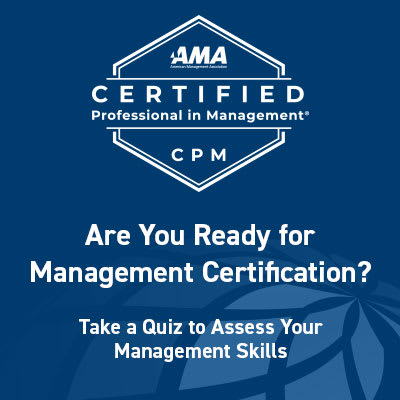Course description

Responding to Conflict: Strategies for Improved Communication
Conflict in business is all too familiar—particularly under increased business pressures. Still, most of us lack basic conflict management skills. Rather than react to conflict on a purely emotional level, you can learn how to manage disputes and disagreements in a positive manner, or even avoid them altogether. This conflict management training will show you how to recognize the causes of interpersonal conflict. It emphasizes skills to help you critically evaluate conflict situations and then choose the appropriate strategies and tools to manage and/or resolve these conflicts. You’ll develop greater awareness of your emotional triggers and how to control them. In addition, you will learn how to continually action-plan around the implementation of your new skills.
How You Will Benefit
- Recognize the underlying causes of conflict
- Map conflict using a five-step approach
- Identify ways to develop flexible responses to personal and professional conflicts
- Practice applying models, techniques and strategies to manage your interpersonal communication behaviors in conflict situations
- Implement strategies to improve your communication and effectively respond to conflict
Upcoming start dates
Who should attend?
Business professionals who want to expand their conflict management skills, understand their own emotions and behaviors when addressing conflict, and find productive ways to manage conflict.
Training content
Learning Objectives
- Identify Underlying Causes of Conflict
- Identify Approaches for Developing Flexible Responses to Personal and Professional Conflicts
- Practice Various Models, Techniques, Strategies, and Approaches to Manage Your Interpersonal Communication Behaviors in Conflict Situations
- Implement Flexible Strategies to Improve Your Communication and to Effectively Respond to Conflict
Developing Conflict Awareness
- Define Conflict
- Explain the Difference Between Disagreement and Conflict
- Describe the Five Levels of a Conflict
- Describe Barriers to Managing and Resolving Conflict
Responding to Conflict
- Identify Your Own Personal Feelings and Actions in Response to Conflict
- Ally the P-U-R-R Model to Demonstrate Understanding and Application
- Apply the Validating Process
- Distinguish Between Listening for Thoughts and Listening for Feelings in a Conversation
- Explain That Meaning Often Comes from the Context of the Relationship Rather Than the Intrinsic Definition of the Words Used
Conflict Strategies
- Identify Your Preferred Strategy or Strategies for Responding to Conflict
- Identify the Five Conflict Strategies
- Analyze Examples and Recommend Appropriate Strategies to Minimize or Manage Conflict
The Role of Trust in Minimizing Conflict
- Describe the Four “Cs” as the Cornerstones of Building Trust
- Explain How Trust Is Lost and Regained, and How Transparency Validates Trust
- Identify Interests Behind Positions
Moving Beyond Conflict
- Describe How Relationship Conflict and Content Conflict Should Be Handled Differently
- Demonstrate How to Turn Potential Disagreements into Discussion By Applying the Model to Disagree
- Identify and Practice Assertiveness Tools and Strategies
- Detoxify Emotional Statements, and Devise Alternative Ways to Express the Message Behind the Emotional Statement
Dealing with Difficult Behaviors
- Explain the Difference Between Difficult People and Difficult Behavior
- Describe an Understanding of Handling Passive Behavior
- Describe a Strategy for Handling Passive or Aggressive Behavior
Mapping Conflict
- Map a Conflict Using a Five-Step Approach
- Explore a Given Conflict from Various “Viewing Points”
- Separate Interests from Positions in a Specific Conflict
- Select a Conflict Strategy Appropriate to Address a Specific Goal
- Demonstrate the Implementation of the Chosen Conflict Strategy
Thunderstorms
- Apply a Combination of Skills, Techniques, and Ideas Presented Throughout This Seminar to a Conflict Situation (Called a “Thunderstorm”)
- Demonstrate the Application of Appropriate Conflict Strategies to Address the “Thunderstorm”
Costs
Course price for:
- Non Members: $2695
- AMA Members: $2395
Certification / Credits
CEU: 1.2, PDU: 12, CPE: 14
Reviews
Average rating 4.9
I really enjoyed this course. I felt engaged from start to finish and will definitely take back life and professional skills to use going forward on a frequent basis.
The instructor was very knowledgeable and skilled in getting the audience involved. Material thorough and its delivery adjusted to the attendees' needs and varying angles of vie...
American Management Association Company Info
The American Management Association, International (AMA) is the global leader in talent development. Founded in 1923, AMA supports the goals of individuals and organizations through a complete range of educational products and services, including instructor-led classroom and virtual seminars, webinars,...




One of the most engaging and informative training sessions I have participated in this past year.